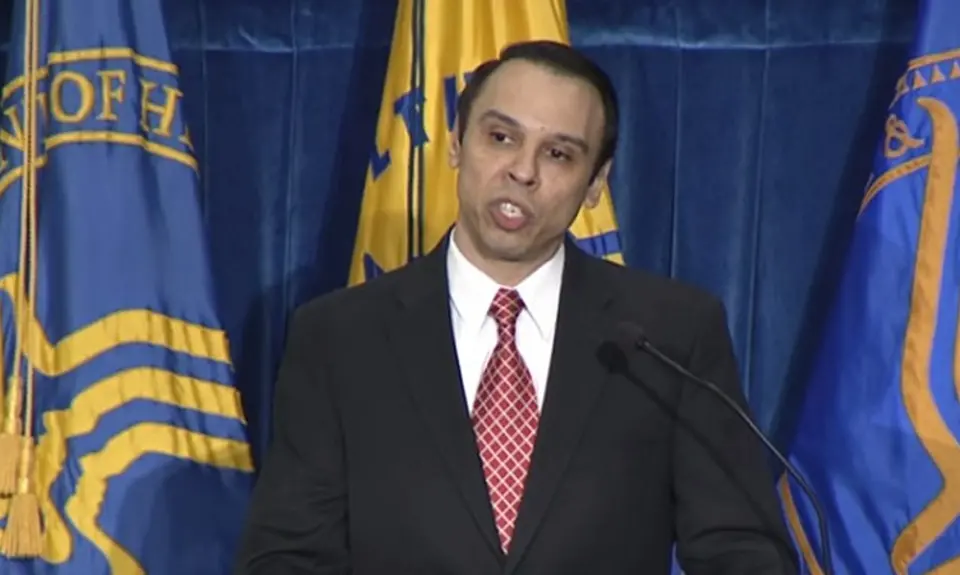The Trump administration announced on Thursday the creation of a new division of the Department of Health and Human Services designed to protect the right of healthcare workers to refuse to provide or participate in care that conflicts with their religious or moral beliefs. The announcement event was emceed by Roger Severino, the former Heritage Foundation and Becket staffer who President Trump appointed to head HHS’s Civil Rights Division—in spite of or because of his anti-LGBTQ record.
At Heritage, Severino had opposed Obama-era regulations meant to prevent discrimination against transgender people in the provision of health care. At Becket, he had portrayed marriage equality as a threat to religious liberty. At Thursday’s event, he described the new division as a step toward fulfilling Trump’s promise to uphold religious liberty—as the Religious Right defines it. He called Trump's signing of an executive order on religious liberty last May as "a turning point in America."
The HHS announcement, the latest of the Trump administration’s many favors to the Religious Right, was timed to coincide with anti-abortion activists’ presence in Washington for Friday’s March for Life. A couple of hours before the HHS ceremony, Severino addressed a “Religious Liberty Summit” convened by the Southern Baptist Ethics and Religious Liberty Commission, which was held in the same downtown D.C. hotel as the Evangelicals for Life gathering.
Acting HHS Secretary Eric Hargan also spoke, quoting an executive order on religious liberty that Trump signed last spring, and saying the HHS move would prevent people of faith from being bullied and help build “a nation of tolerance.” Joining the event were members of Congress associated with the Religious Right, including Reps. Vicky Hartzler and Kevin McCarthy, who called the administration’s move a “historic” response to “rising religious persecution,” and Sen. James Lankford, who praised the new office but also called for additional legislation.
The new office and proposed new rule, which was also released by the administration this week, seem to be largely focused on more aggressively enforcing existing laws that protect health-care providers and institutions from participating in the provision of abortion and other procedures to which they have religious or moral objections, from euthanasia to gender reassignment surgery.
Some advocates for LGBTQ equality fear that the administration’s push to allow religiously affiliated institutions to maintain their “religious identity” and “moral convictions” could embolden institutions to discriminate against LGBTQ people while taking federal taxpayer dollars, a particularly troubling prospect given the increasingly dominant role played in the U.S. healthcare system by Catholic hospitals and the restrictions on care imposed on them and affiliated organizations by the bishops.
Since there are no federal civil rights laws explicitly protecting LGBTQ people against discrimination on the basis of sexual orientation and gender identity, and since the Trump administration asserts that those categories are not covered by other civil rights laws, the administration’s push could give cover to institutions that refuse, for example, to recognize a same-sex spouse as a decision-maker in emergency or end-of-life situations. It’s worth remembering that several bishops are among the many Catholic and evangelical leaders who signed the 2009 Manhattan Declaration, which not only vowed institutional resistance to abortion, euthanasia and assisted suicide, but also declared, “nor will we bend to any rule purporting to force us to bless immoral sexual partnerships, treat them as marriages or the equivalent, or refrain from proclaiming the truth, as we know it, about morality and immorality and marriage and the family.”





